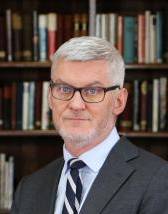Episode 55: Will a Counter-West Axis Replace the Existing International Order?
The first in a four-part summer series, this episode addresses the apparent weakening of the liberal international order established after the Second World War and the rise of a counter-West axis.
Since 1945, the liberal international order has been anchored by Western powers – centrally the US – promoting the principles of democracy, human rights, free trade and multilateralism. This order has played a central role in shaping global governance structures, including institutions like the UN, the World Bank, the IMF and NATO. However, in recent years, the liberal international order has faced numerous challenges. The relative decline of US power – characterised by economic shifts, political polarisation and domestic US concerns – has raised doubts about the US's willingness and ability to continue its global leadership role. And opportunities have emerged for other actors to assert themselves on the global stage.
In this episode, host Neil Melvin is joined by Stephen Walt, the Robert and Renee Belfer Professor of International Affairs at the Harvard Kennedy School and a renowned scholar in the field of international relations, to discuss the future of the global order. Is an alternative world order emerging? Which countries are involved in a systematic challenge to the existing international order, and in what capacities?
The views or statements expressed by guests are their own and their appearance on the podcast does not imply an endorsement of them or any entity they represent. Views and opinions expressed by RUSI employees are those of the employees and do not necessarily reflect the view of RUSI.
PODCAST HOST
Dr Neil Melvin
Director, International Security
International Security

